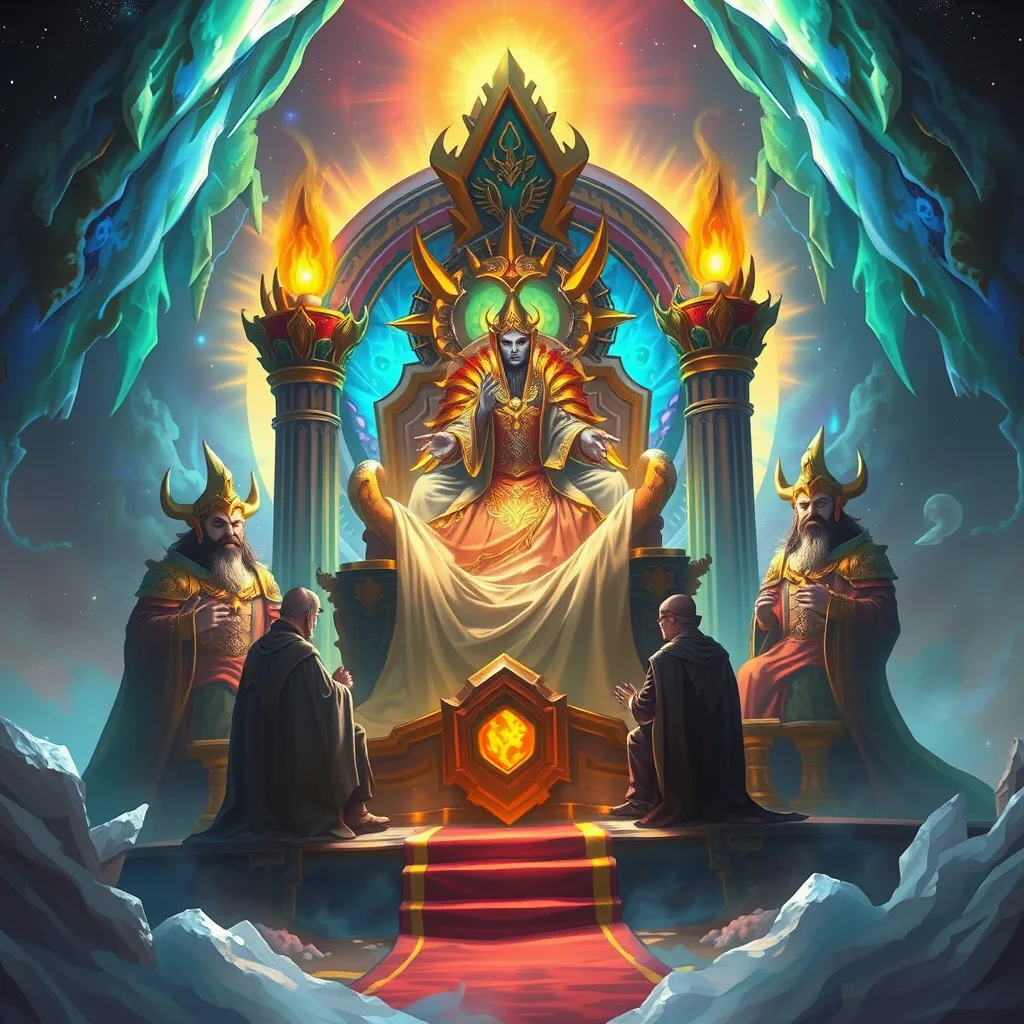Evidence Confirms the Truth
Is God a Narcissist?–Introduction
Is God a Narcissist? The evidence supports a resounding yes. When we examine monotheistic dogma, the traits attributed to God align uncomfortably well with the definition of narcissistic personality disorder. Monotheistic religions present a deity whose demand for worship, control over human behavior, and questionable empathy all point to a disconcerting narcissistic dynamic. In this discussion, we’ll follow the logic of religious claims, ask why such a deity created humanity, and consider whether such a being deserves worship.
Defining Narcissism
The Mayo Clinic defines narcissistic personality disorder as a condition marked by an unreasonably high sense of self-importance, a need for excessive admiration, and a lack of empathy (Mayo Clinic, n.d.). While the traits of human narcissism may seem unrelated to an omnipotent deity, religious texts make a compelling case that God checks all the boxes. Let’s explore how this plays out in monotheistic theology, particularly within Jewish and Christian traditions.
An Unreasonably High Sense of Self-Importance
Religious dogma claims God created the universe to glorify Himself. The Bible opens with God creating the world and humanity. Why? For worship. This raises a troubling question: why would a perfect, omniscient being require validation from lesser creatures?
Jewish and Christian texts impose strict rules on human life. The 613 mitzvot in Judaism and Christian commandments both dictate everything from dietary restrictions to Sabbath observance. These rules suggest a deity deeply invested in control. Such control highlights an inflated self-image, demanding adherence to demonstrate the worthiness of divine attention.
Take the Sabbath story (Numbers 15:32-36): God orders the execution of a man for gathering sticks. The punishment seems egregious, revealing a God prioritizing obedience over compassion. Demanding worship and punishing minor infractions reflect authoritarianism, not benevolence.
Is God a Narcissist? The Need for Admiration
God’s need for human devotion underpins many core religious practices. For example, the Jewish prayer Shema (Deuteronomy 11:13-17) promises abundant harvests if followers obey God’s laws but threatens famine for disobedience. This conditional devotion feeds the divine ego rather than fostering genuine relationships.
The New Testament reinforces this. In John 14:15, Jesus states, “If you love me, keep my commands.” Such statements reduce love to obedience. Religious leaders often preach that blessings come from worship and curses from neglecting God, making devotion transactional. If God truly embodies love and omnipotence, why resort to coercion?
Is God a Narcissist: A Lack of Empathy
Is God a Narcissist? A hallmark of narcissism is a lack of empathy, and biblical narratives often highlight God’s disregard for human suffering. Consider Noah’s Flood (Genesis 6-9). God destroys nearly all life because humans disappointed Him. This act of mass annihilation, justified as cleansing evil, ignores the pain inflicted on innocent beings.

Similarly, God’s test of Abraham (Genesis 22:1-19) reveals an unsettling indifference. God demands Abraham sacrifice his son, Isaac, halting the act only at the last moment. This so-called “test of faith” disregards the emotional torment inflicted on Abraham and Isaac. An empathetic being would never demand such cruelty.
The story of Sodom and Gomorrah (Genesis 18-19) further exemplifies divine apathy.

When Abraham pleads for the cities, God concedes only if ten righteous people exist. Failing that, God destroys the cities, killing countless innocents. Such actions align more with vindictiveness than with compassion.
Insecurity and Lack of Self-Worth: Is God a Narcissist?
Narcissists often mask insecurity with grandiosity. Biblical narratives suggest God’s need to assert power reflects similar insecurity. The story of Job exemplifies this (Job 1-42). God wagers with Satan, allowing Job to suffer unimaginable loss to test his faith. This needless cruelty, driven by God’s desire to prove loyalty, reveals a troubling lack of self-assurance.
Moses’ punishment in Numbers 20:1-12 illustrates divine pettiness. For striking a rock instead of speaking to it, God denies Moses entry into the Promised Land. Such disproportionate punishment suggests hypersensitivity, a trait linked to narcissistic insecurity.
Conclusion: Is God Worthy of Worship?
The evidence strongly supports the proposition that the monotheistic God, as described in Jewish and Christian texts, exhibits narcissistic traits. This God demands worship, enforces control through fear, and demonstrates a lack of empathy. These attributes raise serious questions about the moral worthiness of such a deity.
Even if this God exists, should we worship an entity that prioritizes its ego over the well-being of creation? The answer lies in rejecting blind adherence and instead embracing ethical systems rooted in compassion, fairness, and mutual respect.
Sources Cited
Mayo Clinic. (n.d.). Narcissistic personality disorder. Retrieved from https://www.mayoclinic.org
The Holy Bible, New International Version. (1978). Zondervan.
Suggestions for Further Reading
“The God Delusion” by Richard Dawkins – A critical look at the concept of God and its impact on society.
“God: A Biography” by Jack Miles – An exploration of God’s character in the Bible through a literary lens.
“Misquoting Jesus” by Bart D. Ehrman – Examines how biblical texts evolved and were altered over time.
“The Problem of Pain” by C.S. Lewis – A Christian perspective on why a loving God allows suffering.
“Why There Is No God” by Armin Navabi – A concise argument against belief in God.
“Zealot” by Reza Aslan – Reimagines Jesus’ life and challenges traditional Christian narratives.
“The Case for God” by Karen Armstrong – A historical analysis of how humans conceptualize God.
“God Is Not Great” by Christopher Hitchens – A critique of organized religion’s moral and social failures.
“The Age of Reason” by Thomas Paine – A classic deconstruction of institutionalized religion.




